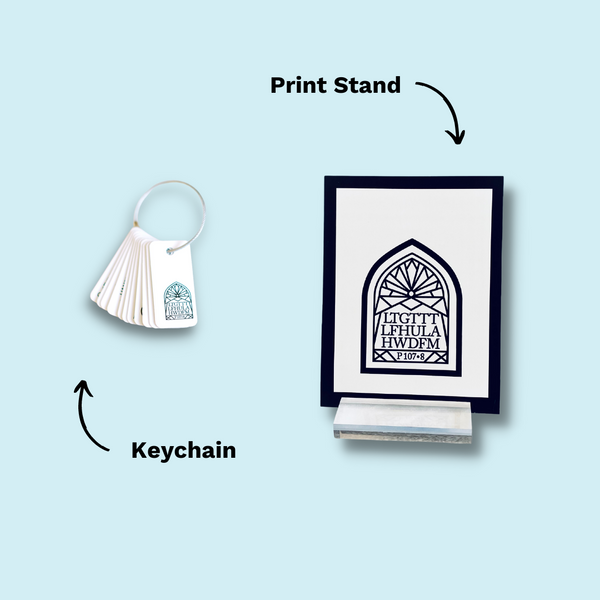"THEREFORE, AS GOD'S CHOSEN PEOPLE, HOLY AND DEARLY LOVED, CLOTHE YOURSELVES WITH COMPASSION, KINDNESS, HUMILITY, GENTLENESS AND PATIENCE."
—COLOSSIANS 3:12
Americans, it seems, are less empathetic than ever. Anyone who reads the comments section on any social media platform can plainly see empathy is not our strong suit.
Recent surveys bear this out. One survey* of American adults reveals our empathy responses decreased by 14% (in adults of all ages) after the pandemic, and by 20% amongst millennials. The same survey reveals women are especially spent, with 57% saying they feel emotionally exhausted after ingesting negative news. While the pandemic seemingly sped up the decay of empathy amongst us, we were already headed that way. Another survey shows that over the past 40 years empathy has been on the decline, with the average person in 2009 being less empathic than 75% of individuals in 1979*.
It’s tough out there.
It feels like we live in a me-first, take-what-you-can-get-at-all-costs kind of world. And the sociological data backs up what we’re feeling. It’s discouraging and even downright depressing at times.
This Is Nothing New
It’s tempting to think this is a modern day problem. It’s easy to assume that social media, the pandemic, and our 21st century dog-eat-dog world is to blame. The truth is, though, there’s nothing new under the sun (Ecclesiastes 1:9). While research may reveal a current downward trend in empathy, humanity has always been prone to pride, self-centeredness, and championing the strong over the weak. Caring for others has always run counter to culture and counter to our sin nature.
When the Apostle Paul wrote his letter to the Colossians, he addressed exactly this issue. He called the Christians in Colossae to live in opposition to the selfish tendencies they saw within themselves and others. Paul exhorted them, and he exhorts you and me, "Therefore, as God’s chosen people, holy and dearly loved, clothe yourselves with compassion, kindness, humility, gentleness and patience” (Colossians 3:12).
Compassion.
Kindness.
Humility.
Gentleness.
Patience.
If you’re familiar with the Bible, it’s easy to glaze over these words—to skim without considering the gravity and glory behind each one. Yada yada, be nice, yada yada.
But it was in taking these very words to heart that the first Christians changed history, eternity, and the entire world.
The Scandal of Empathy
In the fourth century, after Jesus’s life, death, and resurrection, the Roman Emperor Julian wrote a letter* complaining about the radical empathy of the Christians (whom he called godless because they did not worship the Roman gods). He said Christianity “has been specially advanced through the loving service rendered to strangers, and through their care for the burial of the dead. It is a scandal that there is not a single Jew who is a beggar, and that the godless Galileans (Christians) care not only for their own poor but for ours as well; while those who belong to us look in vain for the help that we should render them.”
The compassion, kindness, humility, gentleness, and patience exhibited by the early Christians was so radical and remarkable it received the attention of the Emperor. He saw the strength of their empathy. The goodness of their care. Their kindness was so powerful, in fact, it made him and his pagan empire look bad.
The early church was a magnet for the hurting and the outcast. The impoverished, widows and orphans, women, the sick, and all who lived on the margins knew they could find care at the hands of the Christians. Christianity spread exponentially because Christians extended real and radical care.
Truly the early church embodied Paul’s instructions and they shone brightly, in contrast to the darkness of their pagan surroundings. They were a city on a hill (Matthew 5:14) and the world saw their good deeds and were drawn to their Father in heaven (Matthew 5:16). They lived like “God’s chosen people, holy and dearly loved” and it was unmistakably attractive—a balm for their age. And it can be a balm for ours as well.
What if We Did This Too?
I’m convicted by the early church’s selfless faith. I wonder if I have allowed my own fear to prioritize self-protection and self-preservation over walking in the footsteps of my Savior who came to serve and not to be served (Matthew 20:28).
Is it possible that we 21st century Christians have gotten so swept away by the culture wars of our day that we no longer bear resemblance to our earliest brothers and sisters? Are we a people who exhibit compassion, kindness, humility, gentleness, and patience? Or are we more likely to demand our rights and comforts over others’?
Taking Paul’s instructions to heart is a gut check for sure. I praise God I am chosen, that he has made me holy, and that he dearly loves me. But I’m not so sure God’s love for me has translated well into my love for others. But I want it to. I want my clothes to be compassion, kindness, humility, gentleness and patience. I want others to see me and my siblings in Christ and say, “Ah, there’s empathy. That’s where I know I will find comfort and help. Those people deeply care for others.”
Just like the people who lived in first century Greco-Roman culture, Americans today lack empathy. Selfish living is nothing new.
But the power of Christ has not waned over the last two millennia. He is still in heaven on his throne, he still cares for the outcast and the marginalized, and he still calls you and me to move toward those who are hurting. Precisely because we are chosen, holy, and dearly loved we can heed his call and exhibit radical and even reckless compassion, kindness, humility, gentleness, and patience. Christ is with us, and in us, and he sends us. Beloved, we are chosen and holy. Let’s go.
______________________________________________________________
* https://unitedwaynca.org/blog/empathy-burnout-survey/#:~:text=Overall
* https://www.psychiatrictimes.com/view/the-lost-art-of-empathy
* https://christianhistoryinstitute.org/magazine/article/the-undeserving-poor




